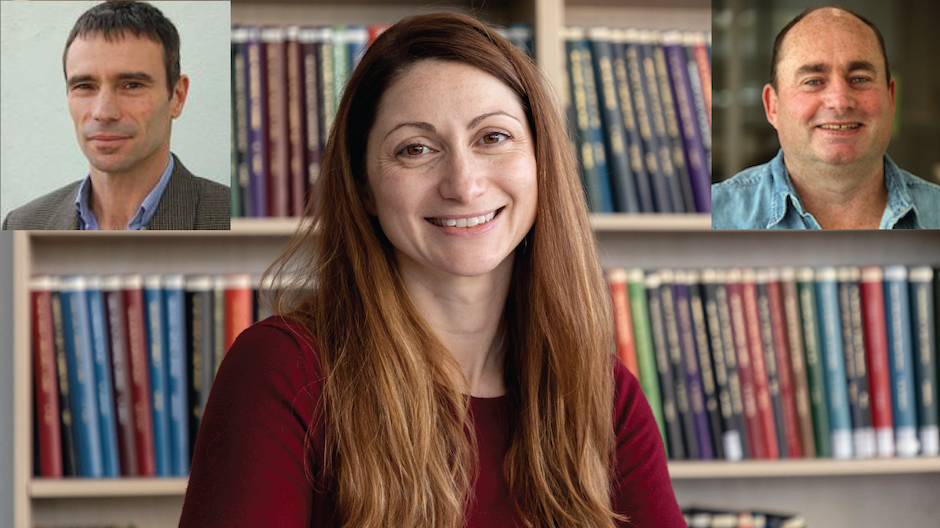
Dr Sarah Diermeier flanked by photos of the associate investigators on the project, Professor Gavin Painter (left) and Associate Professor Greg Walker.
A research team led by Otago Biochemistry’s Dr Sarah Diermeier has just been awarded a grant to improve an therapeutic molecule that will treat an aggressive form of breast cancer.
Thanks to the success of the mRNA Covid19 vaccine, research world-wide is now bristling with ideas for the use and targeting of RNA molecules in other areas of medicine.
The RNA Development Platform was established last year in order to support Aotearoa New Zealand capability in the design and production of RNA therapeutics and vaccines, building scientific expertise, capability, and self‐sufficiency for the country in this research area.
The platform has just announced funding for eight Fast Start Projects across New Zealand, collaborative research projects that encompass a diverse range of areas within RNA research and immediately build capability for the platform.
Dr Diermeier’s lab has already developed a therapeutic antisense oligonucleotide molecule which targets a highly cancer-specific long non-coding RNA found in triple-negative breast cancer, a more aggressive type of breast cancer that is harder to treat, and more likely to come back.
Although this therapeutic shows superior efficacy to chemotherapy in preclinical testing, it has some systemic delivery limitations.
Dr Diermeier has put together a team that aims to enhance the chemistry and formulation of the therapeutic, including Associate Professor Greg Walker of the Otago School of Pharmacy and Professor Gavin Painter of Victoria University of Wellington.
The interdisciplinary team will trial different ways of modifying and packaging the therapeutic molecule to make it specifically targeted and accessible to tumour cells.
They have already developed analytical synthetic chemistry techniques for making the therapeutic, modifying it, and encapsulating it into lipid nanoparticles. They plan to carry out rigorous testing of the new formulations in cancer models in the lab, moving towards first in-human trials.
The initiative aims to generate valuable knowledge and intellectual property regarding RNA-related treatments for cancer.